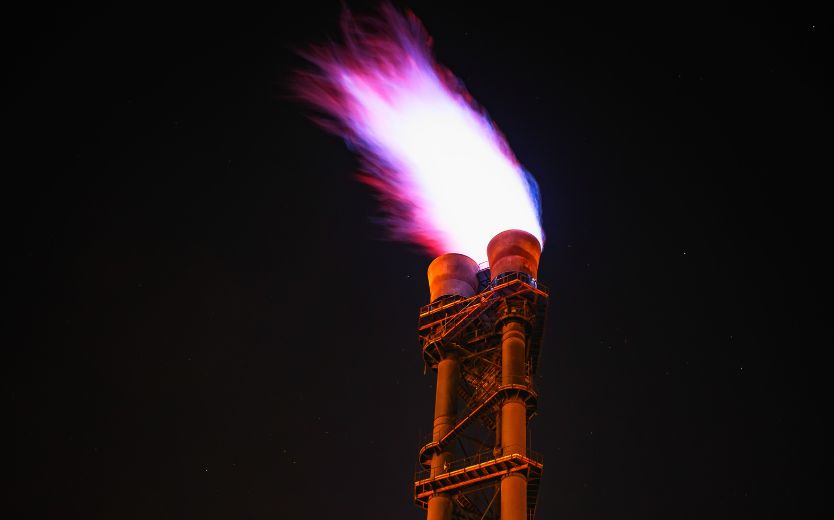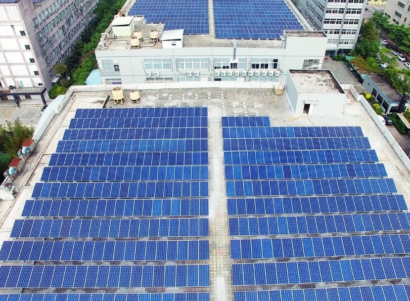PSE Executive Director Seth Shonkoff responds to energy policy announcement by North American leaders
OAKLAND Calif. — At the North American Leaders’ Summit in Ottawa yesterday, the leaders of the United States, Mexico and Canada announced a set of climate, energy and environmental agreements that will unite the efforts of the continent’s governments on a path toward cleaner energy and reductions in greenhouse gas emissions. U.S. President Barack Obama, along with Canadian Prime Minister Justin Trudeau and Mexican President Enrique Peña Nieto, laid the framework for plans to generate half the continent’s electricity from clean energy sources by 2025. All three countries also pledged to cut emissions of methane — a potent greenhouse gas — from their oil and gas industries 40 to 45 percent below 2012 levels by 2025 and to introduce regulations limiting both new and existing methane sources as soon as possible, and to explore opportunities to reduce emissions beyond the stated target.
In addition, they pledged to harmonized fuel economy regulations, phase out fossil fuel subsidies by 2025, join and implement the historic Paris Agreement on climate and call on the G-20 to make commitments to reduce methane emissions from the oil and gas sector.
In response to these developments, PSE Healthy Energy Executive Director Seth Shonkoff released the following remarks:
“We are pleased to hear of this announcement that will bring climate and energy ambitions of our continent’s governments into alignment. We applaud President Obama for working with Mexico and Canada to address the very real need to implement strong regulations and incentives that will move our continent, and globe, away from fossil fuel energy and toward clean, renewable energy sources.
“Setting a target to move North American energy to 50 percent clean energy by 2025 is an important benchmark on the transition to even higher levels of renewable energy that are possible. Numerous technical studies, as well as on-the-ground examples in California, Hawaii and elsewhere, demonstrate that 50 percent is a floor, not a ceiling, in our clean-energy ambitions. We hope that this announcement will lay the groundwork for commitments to even higher levels of clean, renewable energy generation from the wind and sun, complemented by energy storage and energy efficiency, in the years following 2025.
“We are glad that Mexico is joining the United States and Canada in committing to 40 to 45 percent reductions in methane by 2025. Recent science has shown that methane leakage from the oil and gas sector is far worse than governments have previously acknowledged, very likely exceeding levels at which natural gas is climate neutral with coal for electricity generation. While these nations align on this commitment, we hope to see rapid, real and measureable action toward adoption and implementation of strict regulations on methane leakage from this sector, both on existing and new infrastructure. Cutting methane pollution from the oil and gas sector is one of the fastest, most cost-effective ways to slow the rate of current warming.
“In the short term, the climate is being super-charged by methane, and this action to stem existing leakage is needed now to avoid severe global impacts. Additionally, we know that expansion of oil and gas activities inevitably leads to an increase in methane emissions, even with regulations in place. The easiest way to reduce short-term climate pollutants is to restrict activities that emit them. We hope that the three administrations will see this announcement as also a commitment to restrict the expansion of new oil and gas development projects, and to reject many transnational natural gas pipelines and associated processing and export infrastructure currently in planning. We also hope that this announcement is the first step towards regulation of methane emissions from existing oil and gas infrastructure.
“We also applaud these commitments to reductions in greenhouse gases from the transportation sector. Roughly a quarter of the continent’s anthropogenic GHG emissions come from this sector, and by aligning Canadian and Mexican regulations, codes and standards with those standards adopted under the Obama Administration, this agreement will make important headway toward cleaning up this industry and reduce its contributions to global climate change.
“These agreements reflect an unprecedented alignment between the three countries, with Mexico showing clear leadership in expanding on U.S.-Canada methane action. All three leaders deserve credit for these actions and implementation will be the true measure of success.
“Especially at a time of uncertainty in Europe and with American leadership soon to transition, it is vital that North America’s leaders come together in agreement. Strong, ambitious climate, energy and environmental goals should underpin all international trade agreements, and we are pleased that the NAFTA region is finally aligning on these important issues to make a statement to the world of its commitment to adopting these principles within an interconnected economy.”
Seth B.C. Shonkoff, PhD, MPH
Executive Director of PSE Healthy Energy
# # #
Physicians, Scientists and Engineers (PSE) for Healthy Energy is a nonprofit research institute dedicated to supplying evidence-based scientific and technical information on the public health, environmental and climate dimensions of energy production and use. We are the only interdisciplinary collaboration focused specifically on health and sustainability at the intersection of energy science and policy. Visit us at psehealthyenergy.org and follow us on Twitter @PhySciEng.













